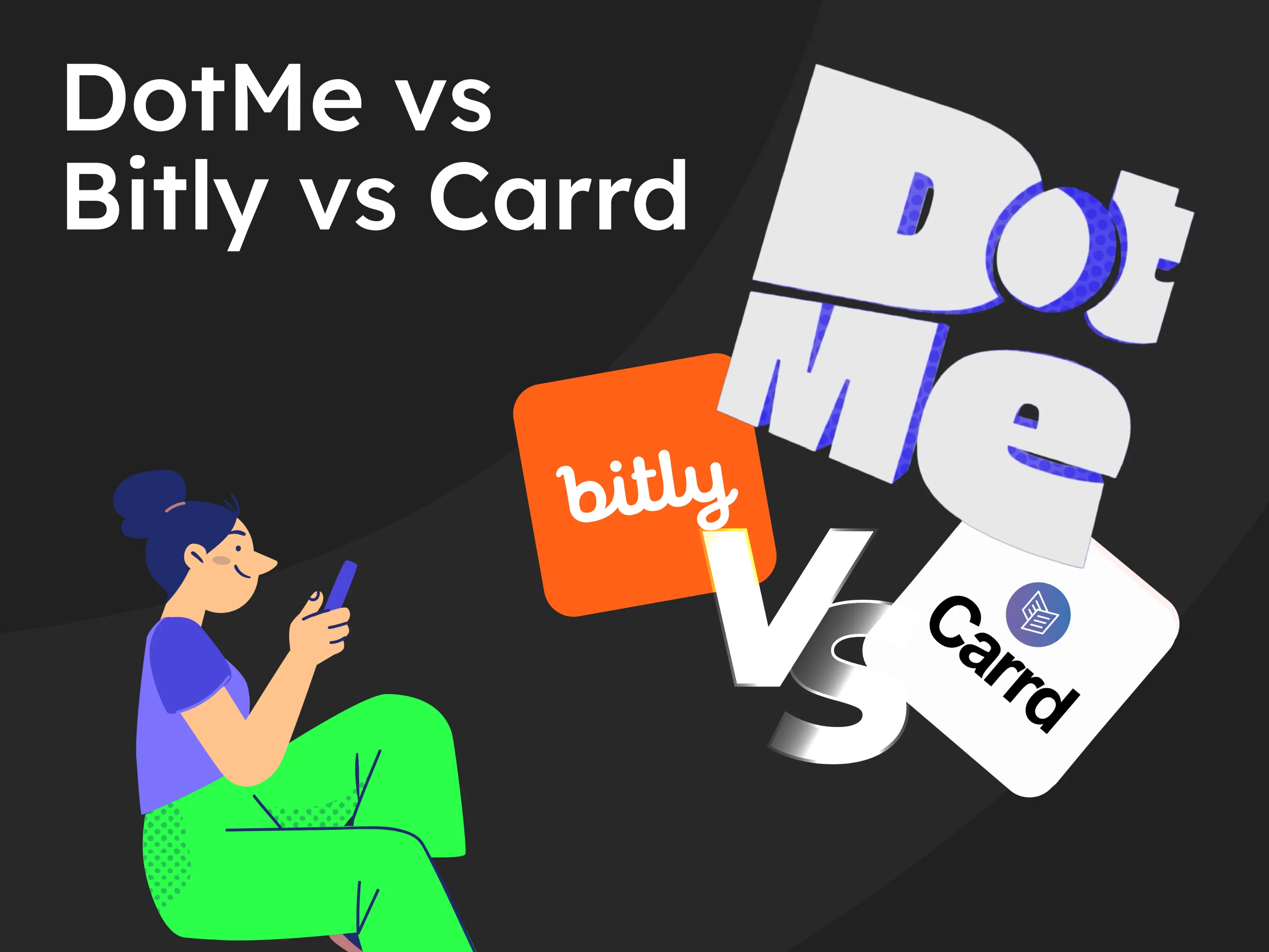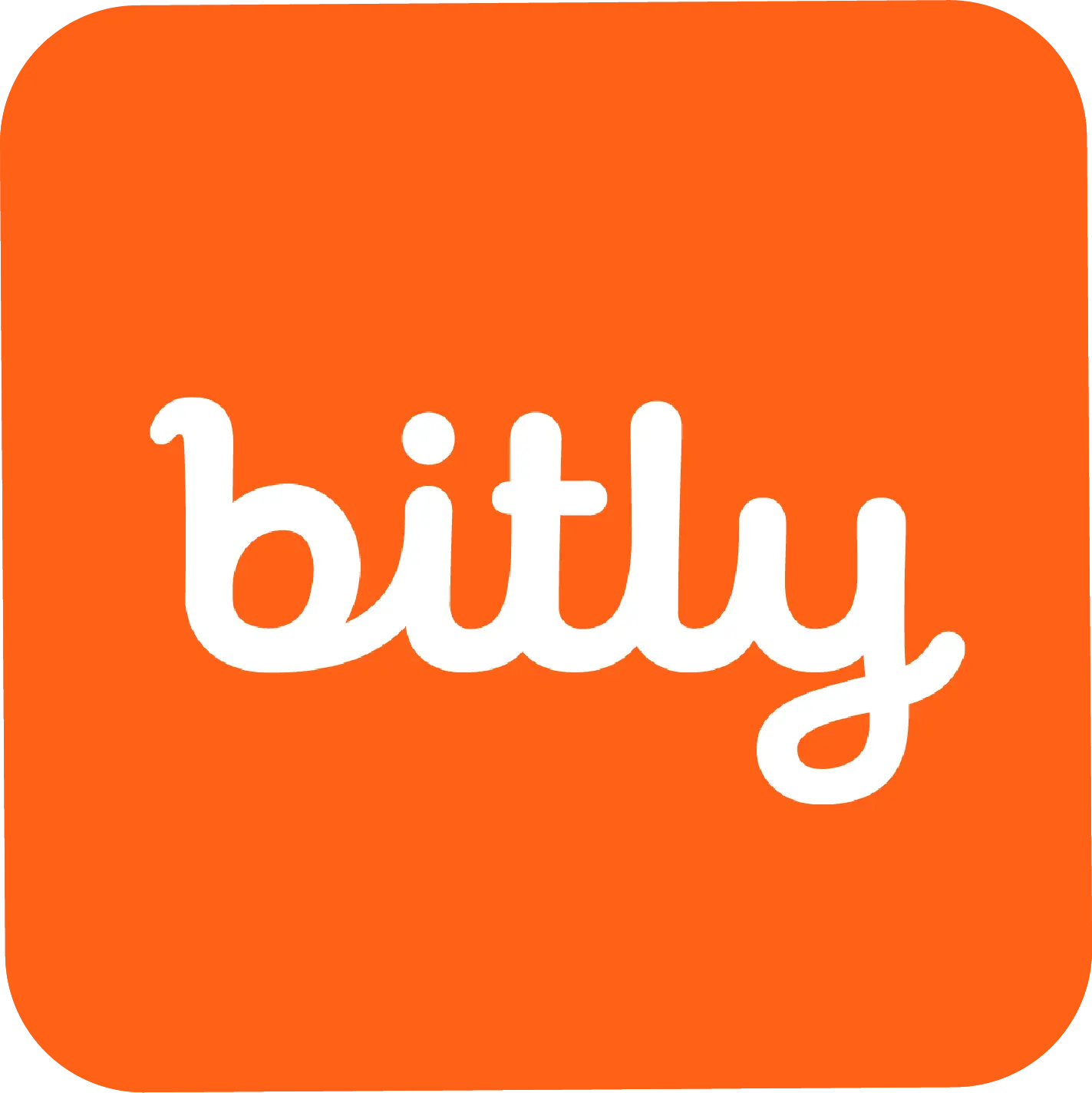
DotMe vs Bitly vs Carrd: Which Bio Link Tool Delivers Real Results for Modern Creators?
In 2025, your link-in-bio isn’t just a placeholder, it’s your personal storefront, traffic engine, and brand identity. With attention spans shorter than ever and mobile usage continuing to grow, the platform you use for your bio link directly impacts how your audience engages, converts, and remembers your brand.
Three platforms stand out in different ways: DotMe, Bitly, and Carrd. DotMe is purpose-built for creators and entrepreneurs looking to monetize, grow, and design powerful digital hubs. Bitly is best known for link shortening and tracking but has stepped into the link-in-bio space with lightweight landing page tools. Carrd is a one-page website builder that offers total layout flexibility but lacks the creator-first tools of DotMe.
In this blog, we’ll explore how DotMe, Bitly, and Carrd compare across customization, monetization, analytics, SEO, integrations, ease of use, pricing and support, so you can choose the right tool for long-term growth.
DotMe: The Creator’s Customizable Command Center

DotMe stands out as an all-in-one solution for creators who want both aesthetic control and business functionality. From influencers and artists to coaches and entrepreneurs, DotMe is designed for those who want to build a digital home that not only looks good but works hard behind the scenes.
At its core, DotMe is more than a link-in-bio. It functions as a microsite, allowing users to drag, drop, and arrange widgets like videos, email forms, carousels, media kits, and digital stores. The editor is intuitive enough for beginners yet powerful enough for pros who want a deeper level of customization.
Monetization is a core focus of DotMe. You can accept payments, sell digital products, collect tips, and book consultations right from your page. Best of all, DotMe offers zero transaction fees on select plans, helping you keep more of what you earn. Built-in real-time analytics, SEO tools, and integrations with platforms like Stripe, Calendly and Mailchimp make it the ideal growth partner.
Bitly: Simple Link Management with Basic Bio Page Features

Bitly is a household name in the digital space, famous for its ability to shorten, brand, and track links. Over the years, it’s expanded into link-in-bio territory, offering lightweight landing pages for users who want more than just a single clickable URL.
Bitly’s bio link feature is streamlined and accessible. You can build a minimalistic landing page that displays multiple links, basic visuals, and a few call-to-action buttons. It’s ideal for marketers and casual users who want quick deployment and simple navigation.
However, it falls short in areas critical to creators, such as e-commerce, design flexibility, and advanced branding. While you get access to Bitly’s robust analytics engine, the platform doesn’t support payments, bookings, or rich media content. For users already entrenched in the Bitly ecosystem, it’s a functional add-on, but not a full-scale creator tool.
Carrd: Ultra-Flexible Landing Pages for Designers and Tinkerers

Carrd is best described as a one-page site builder that gives you near-total creative control. Whether you’re building a portfolio, a bio link, or a product teaser page, Carrd delivers exceptional value for designers and users who enjoy building from scratch.
Carrd allows users to choose from a variety of templates or start with a blank canvas. You can layer in images, videos, animations, forms, and custom styling. It’s a dream platform for creators who want a unique look or need a temporary landing page for a campaign or launch.
But that flexibility comes at a cost. Carrd doesn’t include monetization features natively, and it lacks built-in integrations unless you embed external tools. It’s more of a framework than a solution, perfect for tech-savvy users or those who prioritize design over functionality.
Feature Comparison: Customization, Monetization, and Analytics
When evaluating any digital tool, the real difference lies in how it handles the details. Here’s a deep dive into how DotMe, Bitly, and Carrd compare across the key features creators care about most.
Customization and Branding
DotMe gives creators full creative control. The drag-and-drop interface is packed with customizable widgets that let you arrange content, media, links, and payment options exactly how you want. Choose your brand colors, upload custom assets, and make your page look like a seamless extension of your brand.
Bitly offers only minimal customization. You can adjust link order, background color, and add icons, but it’s largely a plug-and-play tool with little visual variation.
Carrd excels in design flexibility. Every element, from margins to animations, can be controlled. This is a double-edged sword: amazing for creative professionals, but overwhelming for users who just want a functional page.
Ease of Use and Setup
DotMe strikes a great balance between simplicity and depth. Even non-technical users can build impressive pages, while more advanced users will appreciate the power under the hood.
Bitly is by far the simplest. Setting up a bio link takes just a few minutes. If you’ve ever shortened a link with Bitly, you’ll feel right at home.
Carrd takes longer to learn, but once you’re familiar, you’ll appreciate the design precision. It’s ideal for users who are comfortable with light web development principles.
Monetization and Commerce
DotMe shines with native support for tipping, product sales, bookings, and digital downloads. Users can set prices, connect Stripe or PayPal, and start earning immediately.
Bitly doesn’t support monetization natively. You can include links to a store, but all transactions happen off-site with no analytics or checkout integrations.
Carrd allows payment buttons via Stripe embeds, but it’s more of a workaround than a solution. It’s best suited for those willing to configure third-party tools manually.
Analytics and Insights
DotMe includes real-time analytics, track visits, clicks, top-performing links and audience behavior directly from your dashboard.
Bitly offers deep link analytics, especially valuable for users managing campaigns. You can monitor click-through rates, traffic sources and geographic data.
Carrd doesn’t have built-in analytics. Users must embed tools like Google Analytics manually, which adds complexity.
Pricing Breakdown: Free vs Paid Plans and Value for Money
Affordability matters, especially for creators building their brand from the ground up. Each platform has a different take on pricing and value.
DotMe Pricing
DotMe offers a robust free tier with unlimited links, media kits, SEO tools, and analytics. Upgrading unlocks monetization tools, integrations, premium design elements, and the ability to remove platform branding. Pricing is flexible and scales with your needs, making DotMe a solid long-term investment.
Bitly Pricing
Bitly’s free plan is generous for link shortening and basic landing pages. Paid plans offer branded URLs, team collaboration, and link analytics — but the link-in-bio builder is still basic even at premium levels.
Carrd Pricing
Carrd is one of the most budget-friendly tools available. For under $20/year, users can build multiple custom pages, connect domains and add forms. However, if you need monetization or integrations, expect to handle those separately.
SEO, Integrations, and Platform Support: Long-Term Fit for Growth
Beyond daily use, a bio link platform should support your long-term growth. From SEO visibility to integrations with your favorite tools, here’s how DotMe, Bitly, and Carrd stack up.
SEO and Discoverability
DotMe provides rich SEO features like meta tags, alt text, and customizable URLs. Your page can rank in search engines and support your broader marketing strategy.
Bitly does not emphasize SEO. While links can be customized, pages are not optimized for search indexing.
Carrd allows full SEO customization if you know where to add it, but it’s all manual. It’s more suited for users who know their way around metadata.
Integrations and Third-Party Tools
DotMe offers direct integrations with Shopify, Calendly, Substack, Mailchimp, Stripe, and more. No code needed, everything works out of the box.
Bitly connects with marketing platforms like Hootsuite and Buffer. These are great for marketers but limited for creators.
Carrd doesn’t offer native integrations. You’ll need to use HTML embeds or API connections, which limits accessibility for non-technical users.
Customer Support and Educational Resources
DotMe delivers hands-on support via live chat, email, and a detailed help center. It also has growing community resources and templates for creators.
Bitly offers email support and an extensive knowledge base. Live support is reserved for higher-tier business users.
Carrd keeps support minimal, offering email access and a few helpful guides. There’s a small but loyal community that shares templates and tips.
Final Verdict: DotMe Offers the Most Complete Bio Link Experience
All three platforms serve different niches. Bitly is excellent for users who need powerful link analytics and fast setup. Carrd is ideal for those who want total design freedom and are comfortable piecing together their digital presence manually.
But if you’re a creator looking to turn your link-in-bio into a growth engine, complete with commerce, customization, and seamless integrations, DotMe stands out as the best choice.
DotMe combines form and function with features like real-time analytics, native payments, media kits, and zero transaction fees. Whether you’re starting your creator journey or scaling a digital brand, DotMe delivers everything you need in one powerful, easy-to-use platform.
FAQs
Is DotMe easier to use than Carrd?
Yes. DotMe is built with non-designers in mind, while Carrd requires more technical setup.
Can Bitly pages support video or product embeds?
Not natively. Bitly is designed for simple links, not multimedia content.
Which platform is best for e-commerce creators?
DotMe. It supports tipping, bookings, product sales, and integrates with Stripe.
Does Carrd support SEO?
Technically yes, but all SEO customization must be done manually.
Is DotMe worth paying for?
Absolutely. Its combination of design tools, analytics, monetization, and no transaction fees make it a great value for creators.

